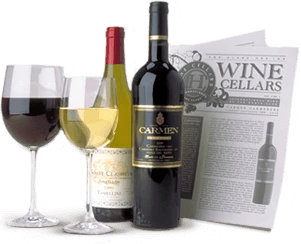The 2012 Condesa Eylo Verdejo cuts a fine portrait with a bright shiny robe that reflects the brilliance of the Castilian sun. Awarded Gold at Europe’s prestigious Concours Mondiale in Brussels, the 2012 Condesa Eylo offers plenty of palate pleasure with scents and savors of fresh picked apples, pears, and spring flowers – all of which makes this Verdejo hard to resist. Fleshy, elegant and impeccably balanced, the 2012 Condesa Eylo offers sumptuous flavors along with laser like precision. Pure fruit flavors tempered with hints of herb and mineral enliven the palate and add complexity to Jose Antonio Merayo’s delicious Rueda Verdejo. And best of all, Condesa Eylo exits with a long, refreshing finish. We suggest moderate chilling (38°-42° F) for the 2012 Condesa Eylo, though some may prefer this wine icy cold, especially in warmer climates, so as you like it!
The 2012 Condesa Eylo Verdejo provides an ideal accompaniment to a host of traditional Spanish tapas as well as most anything that once swam in the sea. The wine’s bright flavors and impeccable balance pair beautifully with fish, shellfish, pasta, risotto, and of course paella. Pan Seared Flounder served over a bed of Portobello mushrooms and sautéed spinach is a perennial favorite. Potato Crusted Sea Bass over chorizo, shrimp, and lump crab enchiladas provides another tasty accompaniment. Carnaroli Risotto served with wild morels, caramelized broccoli, and a healthy dose of Parmigiano Reggiano remains another delicious accompaniment to Condesa Eylo’s brilliant Verdejo. Clams, scallops, lobster, and baby mussels, steamed in a light garlic and herb cream sauce also make great pairings. A red bean and spicy Italian sausage dish provides yet another tasty companion. Enjoy!
In 1996, Jose Antonio Merayo created the Bodegas Val de Vid in the heart of Rueda. He produces only fine white wine, made primarily from Verdejo – Spain’s most illustrious white grape. With nearly 50 acres of vineyards devoted to Verdejo, an additional 6 acres of Viura and a miniscule amount of Sauvignon Blanc, Merayo fashions several outstanding wines, including Condesa Eylo – a tantalizing blend of 97% Verdejo and 3% Sauvignon Blanc.
Bodegas Val de Vid’s vineyards enjoy a privileged terroir. Located on ancient alluvial soils from the nearby Duero River and its tributaries, Val de Vid’s vineyards benefit from dry hot days and cool nights. Such ideal conditions yield Verdejo grapes of impeccable balance, exhibiting ideal levels of both sugar and acid. All of Val de Vid’s wines are made in the bodegas’ modern winery under the watchful eye of Jose Antonio Merayo.
Verdejo is a premium white grape that has long been cultivated in Spain. Though its spiritual home remains Spain’s Rueda, an important viticultural area northwest of Madrid in an historic part of the ancient province of Castilla y León, Verdejo’s origin is believed to be North Africa. Verdejo likely arrived in Rueda with the Moors prior to the 11th century. The grape played an important part in resettling Rueda after the 11th century Reconquest of Castilla when King Alfonso IV offered freehold ownership of land to those prepared to resettle Rueda. As a result, Verdejo thrived in Rueda until the 19th century and the advent of phylloxera, which decimated the region.
Fortunately, Verdejo was saved from extinction and re-planted widely throughout Rueda in the 1970s. Marqués de Riscal, a leading Rioja producer, came to Rueda and set up a bodega to make young, fresh white wines from native Verdejo grapes. Meanwhile, Angel Rodriquez was launching his quest at Martinsancho to revive Verdejo and restore the indigenous varietal to its former glory. Because of these efforts and the advent of modern wine equipment, Verdejo has never been better. It produces a smooth, highly aromatic wine today that is rich in varietal character. As a result, Rueda won D.O. (Denominación de Origen) status in 1980, and it has never looked back.
Within an historic part of ancient Castilla y León, to the northwest of Spain’s capital, Madrid, lies Rueda. This area, especially the town of Nava del Rey and the surrounding countryside, is known for its extraordinary architecture. Many opulent churches, monasteries, and mansions punctuate the region, highlighting Rueda’s important role in the medieval Reconquest of Spain from the Moors.
Wine production has been an integral part of Rueda since the 11th century, when King Alfonso IV offered freehold ownership of land to those prepared to resettle Rueda after the Reconquest. Monastic orders quickly took up the King’s offer and built monasteries with vineyards to provide a steady wine supply. Soon the vineyards of Rueda had become the primary suppliers of wine to the itinerant medieval Castilian court. The viticultural glory and commercial success of Rueda and its noble Verdejo grape would last until phylloxera devastated the region between 1909 and 1922, destroying more than two-thirds of the region’s vineyards. Subsequently, the vines chosen for replanting were unfortunately selected for yield rather than quality, which means the high yielding Palomino replaced Verdejo as the main grape in Rueda. Furthermore, the little Verdejo that was made had no chance to mature; it was sold locally in bulk.
Fortunately, the sagging fortunes of Rueda took a turn for the better in the 1970s, thanks to the arduous work of Angel Rodriquez and Marqués de Riscal, who championed the propagation of Verdejo. Rueda now ranks as Spain’s leading D.O. for still premium white wines.

Enjoy Limited Production Estate
Bottled Wines
Discover limited production estate bottled wines such as Vergenoegd's internationally
acclaimed 2005 Cabernet Sauvignon, imported exclusively for our members.

